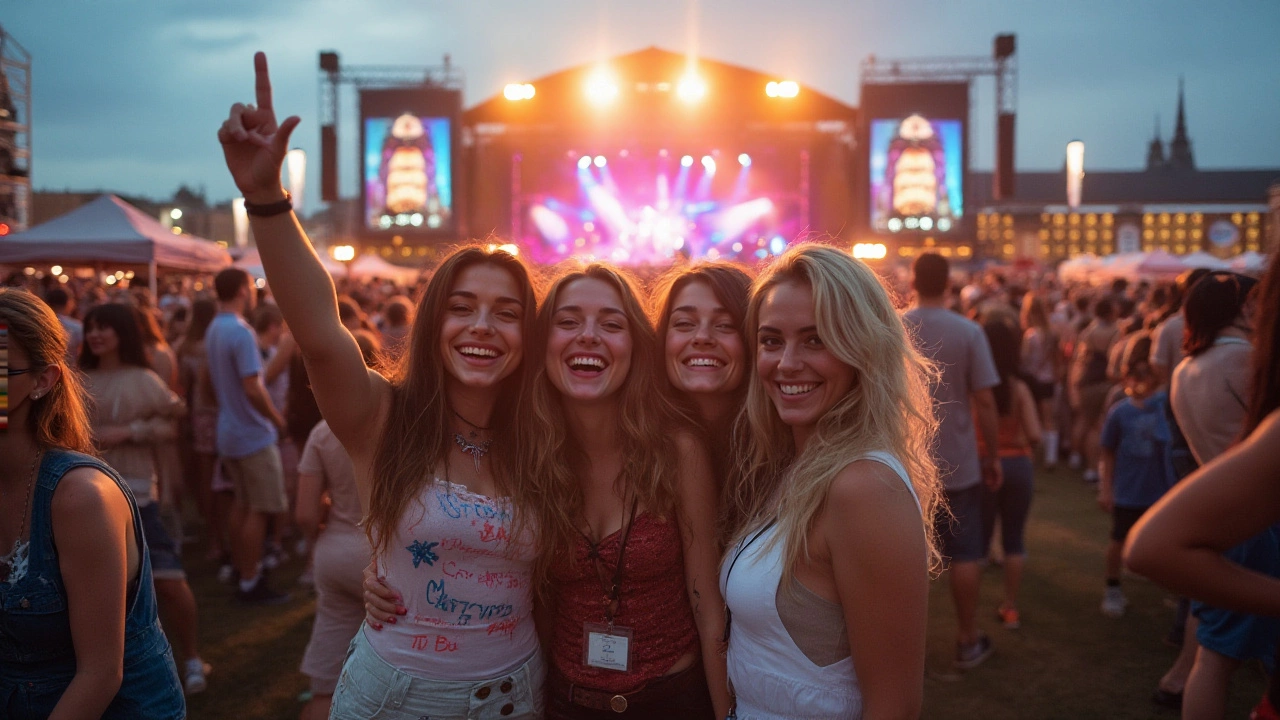Understanding the Real Cost of Music Festivals
Music festivals feel like a must‑do, but the price tag can surprise you. It isn’t just the ticket price – you also have travel, food, accommodation, and extras to think about. Knowing where the money goes helps you plan a realistic budget and still have a great time.
Ticket Prices – The Starting Point
Tickets are the biggest single expense. Early‑bird tickets usually cost 20‑30% less than regular sales. A three‑day general admission pass at a midsize UK festival can be £150‑£250, while big‑name events can push £300‑£500. VIP packages add backstage access, exclusive lounges, or reserved viewing areas and can double the price. If you’re on a budget, stick to standard tickets and grab them as soon as they go on sale.
Travel, Stay, and Food – The Hidden Costs
Getting to the site is the next big chunk. Driving can mean fuel and parking fees (often £15‑£30). Trains and coaches vary – a round‑trip from London to a South‑East festival might be £40‑£80 if you book early. Once you’re there, accommodation ranges from on‑site camping (£30‑£60 per night) to nearby B&Bs (£70‑£120). Sharing a tent or a hostel room cuts costs dramatically.
Food and drink at festivals are notoriously pricey. A simple meal can cost £8‑£12, and a drink is often £5‑£7. Budget £30‑£50 per day for meals if you plan to eat on site. Many festivals now allow you to bring your own snacks and water, which can halve that amount.
Don’t forget extras. Merchandise, photo ops, and cash‑less wristbands add up fast. A festival shirt might be £25, and a photo with a band can be £15‑£20. Set a small “fun money” limit – £50‑£100 – so you don’t overspend.
Practical Tips to Keep the Cost Down
1. Buy tickets early. Early‑bird and pre‑sale offers are the easiest way to shave off 20‑30%.
2. Choose camping. On‑site tent spots are cheaper than hotels and give you the full festival vibe.
3. Car‑share or use public transport. Splitting fuel or a rail ticket reduces travel costs dramatically.
4. Bring your own food. Many festivals allow sealed snacks and refillable water bottles – pack easy meals like sandwiches, fruit, and nuts.
5. Set a daily spending limit. Cashless wristbands track your spending, so decide on a cap before you start swiping.
6. Watch for bundle deals. Some festivals sell ticket + camping packages at a discount.
7. Stay flexible with dates. Off‑peak weekends or weekday events often have lower prices.
Putting It All Together – A Sample Budget
Here’s a quick example for a three‑day festival 150 miles away:
- Ticket (early‑bird): £180
- Travel (train round‑trip, booked 2 months ahead): £60
- Camping (3 nights): £120
- Food & drink (£40 per day): £120
- Extras (merch, photos, wristband top‑up): £80
Total: £560. By swapping a hotel for camping and bringing snacks, you could shave £150‑£200 off the total.
Knowing where the money goes lets you enjoy the music without the stress of surprise bills. Use the tips above, track your spend, and you’ll have more cash left for the next festival or that post‑show celebration.
Now that you see the full picture, go ahead and plan your next festival adventure with confidence. Happy listening!
